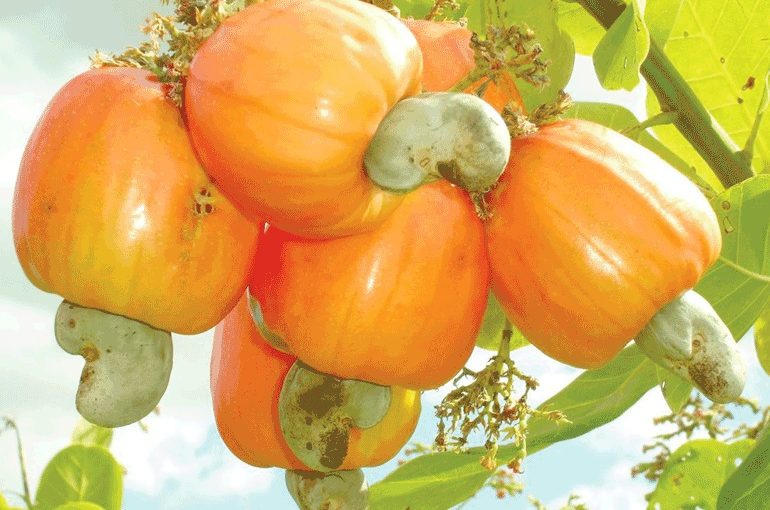May 31, 2019
The Country Director for the Adventist Development and Relief Agency (ADRA) has revealed that cashew generated $224 million for the country from a total export of 163,000 metric tonnes in 2016/2017 farming season.
Images by IT
Dr William Y.K. Brown says cashew, a non-traditional crop, has become a major foreign exchange earner and it is high time people start paying attention to the cultivation of the crop.
“Within the agricultural sector Cashew present huge opportunities for employment and income generation for thousands of people in Northern Savannah vegetation zones,” he said.
The Country Director is confident that the industry will increase access to employment opportunities, ensure the sustainability of development of local authorities and increase income-generating activities in cashew growing areas in the selected districts by 2021.
Dr Brown added that the Municipal and District Assembly’s revenue will increase by 10% in cashew growing districts.
He disclosed this during the launch of the European Union Co-Funded Bono-Asante Cashew Project Dubbed “Cashew for income and jobs” in Wenchi in the Bono Region.
According to him, the Project seeks to achieve SDG 1, 8 and 17 in five selected districts namely; Ejura-Sekyedumase District, Wenchi, Jaman North, Nkoranza North and Tain District. These districts have a target of reaching 14,500 individuals including farmers, nut collectors, aggregators, honey producers, transporters and exporters within three years.
The launch was organized by ADRA, a global Humanitarian organization of the Seventh-day Adventist Church with a mission to work with people in poverty and distress areas to create just and positive change.
The Country Director said Ghana has a comparative advantage to export more cashew to the global market yet the non-adoption of innovations makes it impossible for the farmers to produce the required volumes for local processing and export.
The Project Manager for the Project, Dr Anthony Augustus Mainoo said the Project is expected to increase the farmers' income by 30%, employment within the sector and knowledge on climate change in relation to cashew production.
According to him, the five basic practices of pruning, spraying of farms to control diseases and pests, manuring and fertilization, weed control and effective nut collection can help improve farmers yields namely:
He therefore urged farmers to adhere to these practices to increase their yields and incomes for improved living standards.
To give a strong boost to the sector, Dr Mainoo said his outfit would also increase theoretical knowledge and practical skills of cashew farmers along the value chain.
On his part, Dr Prince Kwakye Afriyie Municipal Chief Executive for Wenchi indicated that the industry has revolutionised and proven that farming can be a good income earner that sustains livelihoods.
"There may still be numerous challenges facing this industry but the fact that its gains are guaranteed makes it a worthy venture especially considering the fact that the government and other stakeholders are working on fixing these issues," he said.
The Wenchi Baamhene and acting president Wenchi Traditional Council, Nana Tabiri Asimpi Adinka Kosopre, said the aggregators must go beyond only collecting and exporting cashew.
“They don’t read about the conditions in terms of the climate issue, in terms of packaging, they don’t look at the standards at all, they are just eager to export,” he said.
He wants them to be able to advise on how farmers can produce quality cashew.
"I believe collectively we can chart a path which builds on our unique strengths in our quest to increase cashew production in Ghana, Cashew nut has risen to become the second largest foreign exchange earner and export crop for Ghana. He urged all to be supportive in various stages of production".
Also present at the launch were representatives from the Cashew Farmer's Associations, M/DCE's, Coordinating Directors, Planning Officers, DoA Directors, Cashew Desk Officers, Officials from ADRA.
Reporters









